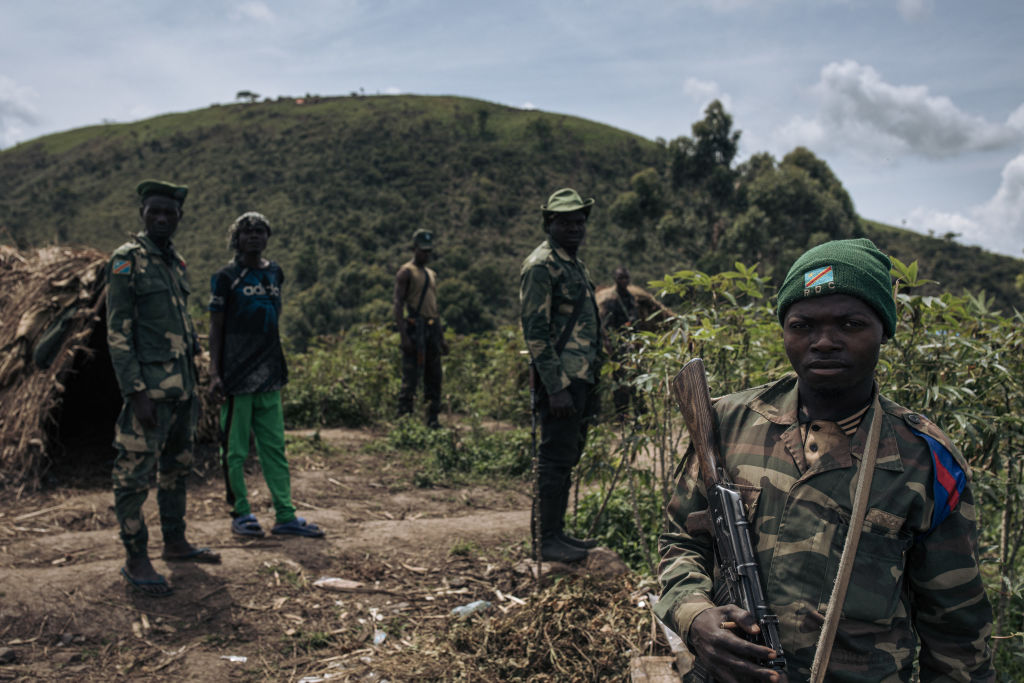
ADF STAFF
In the decades after the Congo Wars of the 1990s, widespread armed conflict has touched the lives of nearly everyone in the eastern provinces of the Democratic Republic of the Congo.
Recent reports revealed the tangled morass of parties who are engaged in and around the battlegrounds of the North and South Kivu regions, where unabated violence continues to threaten a return of broader regional conflicts.
“Neighboring countries are involved in a variety of ways,” Professor Kristof Titeca of Antwerp University wrote in an August 20 article for The Conversation Africa magazine. “Understanding, or solving, the conflict needs to involve these countries.”
Rwanda’s acrimonious relationship with the DRC has become central to the widening conflict.
Since a resurgence of fighting in 2021, the M23 rebel group has seized large swaths of territory in North Kivu province. Rwanda has denied multiple reports that it is backing M23.
A recent report by a United Nations group of experts stated that as many as 4,000 Rwandan soldiers have fought alongside M23 rebels in North Kivu, “matching if not surpassing” the number of M23 fighters, estimated at 3,000.
Drone footage, video recordings, authenticated photographs, testimony and intelligence bolstered the report’s assertion of systematic border incursions by the Rwanda Defence Force (RDF).
Videos and photos showed rows of uniformed armed men operating armored vehicles with radar and anti-aircraft missile systems, heavy artillery, and trucks to transport troops.
A July 8 U.N. report claims that Ugandan army and intelligence officials also are providing “active support” to M23 rebels and passively permitting M23 and RDF troops “on its territory or passage through it.”
Uganda denies involvement, with deputy defense spokesperson Deo Akiiki calling the allegations “laughable, baseless and illogical.”
However, Titeca, who has studied conflict and rebel movements in the DRC and Uganda for nearly two decades, cited Uganda’s economic, political and security interests in the eastern DRC.
“Uganda has a multitude of related interests in eastern DRC,” he wrote. “During periods of upheaval, such as the current M23 crisis, Uganda tries to protect these interests. This is a difficult balancing act.
“M23’s presence in the region forces Kampala into action to protect its interests. Leaving eastern DRC or M23 only under the influence of Rwanda is seen as a threat to these interests.”
Despite the history of bloody interventions by neighboring countries, some are making efforts to keep the peace. Kenya has hosted talks. Before the U.N. experts’ report, Uganda had tried to mediate between DRC and M23 representatives.
There was a surge of hope when Angola hosted talks in Luanda and brokered a cease-fire between M23 and a coalition of Congolese forces, local militias known as the Wazalendo, and regional troops from the Southern African Development Community.
It didn’t last for even one day, as M23 captured the town of Ishasha on the border with Uganda.
Henry Pacifique Mayala, who researches and documents armed groups in the eastern DRC for the Kivu Security Barometer, called for sanctions against those who refuse to adhere to peace deals.
“We talked about the recent truce violation, but nothing has been done,” he told news service Deutsche Welle. “We know that there were deaths in a camp for displaced people in Bweremana [near the border with Rwanda], and we know in which direction the bombs fell on the population. And so, we’ll have to act, because we’ve acted too much with the carrot, now we’ll have to act with the stick.”
The post Can DRC’s Neighbors Halt Threat of New Regional War? appeared first on Africa Defense Forum.










